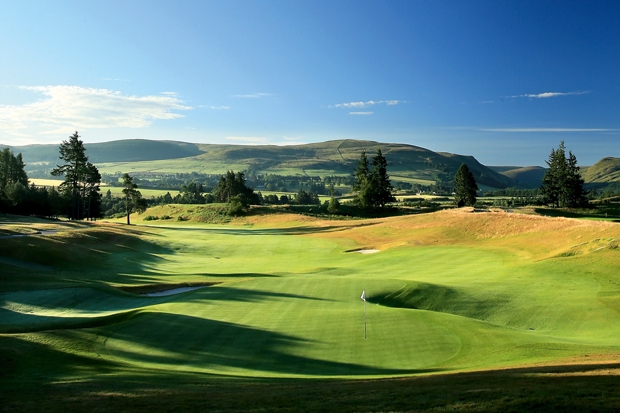Pity the folk at Gleneagles. They have the misfortune to host the Ryder Cup this year. Nothing, surely, can surpass the drama of the previous contest between the United States and Europe, held at Medinah Country Club near Chicago in 2012. The Yanks dominated for two days before Ian Poulter, an Englishman who plays golf with an intensity that borders on divine possession, marched on to the 18th green late on the second evening. He had the bit between his teeth, having made four straight birdies to keep himself in his game. All square; the US 10–5 up in the match overall. With darkness gathering and the boozy American support raining scorn on him, Poulter sunk a tricky 12-foot putt for birdie to win. He roared in defiance — eyes wide, knees bent and fists pumping.
The initiative, momentum — call it what you will — had visibly shifted. Yet European victory still looked impossible. The USA led 10–6 and required just 4½ points from 12 to win, while Europe needed 8½ to win. The subsequent result — Europe 14½–USA 13½ — was the greatest comeback in 85 years of the Ryder Cup. Gleneagles must compete with ‘the miracle of Medinah’.
Gleneagles has three golf courses, each of which epitomises Scottish golf. The place is both claustrophobic and open. The holes are surrounded by tall evergreen trees and billowing shrubs. Each green is a riddle. Everything is set against a louring backdrop of mountains and forests. Eagles patrol the skies.
The amateur golfer learns to trust only in the fairways. The rough is a treacherous bog of moss and peat. The bunkers are terrifying because the sand has the consistency of mud; I took four shots to get out of a little sand trap adjacent to the 17th green on the King’s Course, ruining an otherwise respectable round.








Comments
Join the debate for just £1 a month
Be part of the conversation with other Spectator readers by getting your first three months for £3.
UNLOCK ACCESS Just £1 a monthAlready a subscriber? Log in